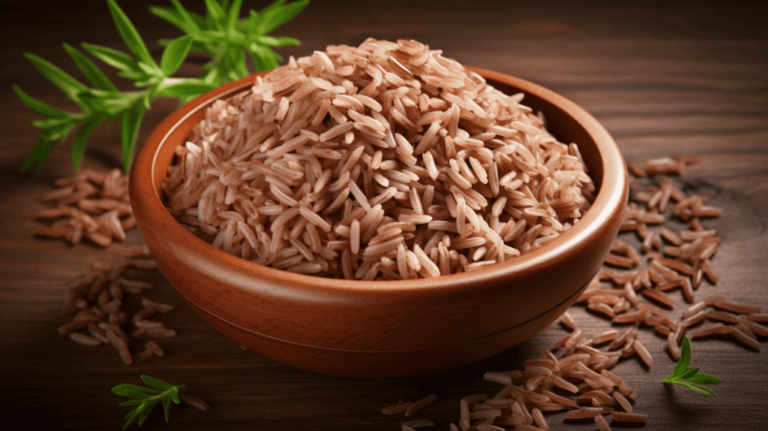In recent years, the term “fiid” has emerged as a significant topic in the realms of food technology and culinary innovation. Fiid, pronounced “feed,” represents a new approach to food consumption, leveraging technology to improve nutrition, sustainability, and convenience. In this article, we will explore the concept of fiid in detail, discussing its origins, benefits, challenges, and potential impact on the future of food.
What is Fiid?
Fiid refers to a category of food products and technologies designed to enhance the way we consume food. It encompasses a wide range of innovations, including meal replacement products, nutritional supplements, and advanced food delivery systems. The primary goal of fiid is to address contemporary challenges in nutrition and food accessibility, providing people with healthier and more sustainable options.
Fiid products often prioritize high nutrient density, meaning they provide a significant amount of essential nutrients relative to their caloric content. This makes them appealing to individuals seeking to improve their dietary habits without compromising convenience.
The Origins of Fiid
The concept of fiid can be traced back to several factors that have shaped modern food consumption patterns. One of the main drivers is the increasing awareness of nutrition and health. As people become more health-conscious, there is a growing demand for products that offer better nutritional value.
Additionally, advancements in food technology and processing have made it possible to create products that are not only nutritious but also convenient. The rise of busy lifestyles has led consumers to seek out quick and easy meal options, paving the way for innovations in the fiid space.
Benefits of Fiid
Nutritional Advantages
One of the most significant benefits of fiid is its potential to enhance nutritional intake. Many fiid products are designed to provide a balanced combination of macronutrients (proteins, fats, and carbohydrates) and micronutrients (vitamins and minerals). This can help individuals meet their dietary needs more effectively.
For example, meal replacement shakes and bars often contain a well-rounded blend of nutrients, making them an excellent option for those who may struggle to consume a balanced diet. Moreover, fiid products can be tailored to specific dietary requirements, such as gluten-free, vegan, or low-carb options, making them accessible to a wider audience.
Sustainability
Another key advantage of fiid is its potential to promote sustainability in food production and consumption. Many fiid products utilize ingredients that have a lower environmental impact compared to traditional food sources. For instance, plant-based meal replacements can require fewer resources in terms of land and water compared to animal-based foods.
Additionally, the focus on reducing food waste is integral to the fiid philosophy. Many fiid companies emphasize the use of upcycled ingredients or aim to minimize packaging waste, contributing to a more sustainable food system overall.
Convenience and Accessibility
In today’s fast-paced world, convenience is a crucial factor for consumers. Fiid products offer an easy way to obtain essential nutrients without the need for extensive meal preparation. This is particularly beneficial for individuals with busy schedules, such as working professionals or students.
Furthermore, fiid products can enhance accessibility to nutritious food. For people living in food deserts or areas with limited access to fresh produce, meal replacements and nutritionally fortified products can provide a valuable source of essential nutrients.
Challenges Facing Fiid
Consumer Acceptance
Despite the numerous benefits of fiid, consumer acceptance remains a challenge. Many individuals are hesitant to embrace meal replacements or unconventional food products due to concerns about taste, texture, and overall satisfaction. Education and marketing efforts will be crucial in addressing these concerns and helping consumers understand the value of fiid.
Regulatory Hurdles
The food industry is subject to strict regulations, and fiid products are no exception. Regulatory bodies often require extensive testing and labeling for new food products, which can pose challenges for innovative fiid companies. Navigating these regulations can be time-consuming and costly, potentially stifling innovation in the space.
Technological Limitations
While advancements in food technology have facilitated the development of fiid products, there are still limitations to overcome. For instance, creating products that have a long shelf life while retaining nutritional value and flavor can be challenging. Ongoing research and development will be essential to address these technological hurdles.
The Future of Fiid
Innovations on the Horizon
As the demand for fiid products continues to grow, we can expect to see exciting innovations on the horizon. Companies are increasingly exploring new ingredients, formulations, and delivery methods to enhance the consumer experience. For example, advancements in fermentation and biotechnology may lead to the development of novel protein sources, such as lab-grown meats or insect-based proteins.
Moreover, personalized nutrition is becoming a focal point in the fiid space. With advancements in genetic testing and data analysis, companies may soon offer tailored meal solutions that align with individual nutritional needs and preferences.
Global Impact
The potential impact of fiid extends beyond individual health and convenience. As the global population continues to grow, addressing food security and sustainability will be paramount. Fiid products have the potential to play a significant role in alleviating hunger and malnutrition, particularly in developing regions where access to nutritious food is limited.
By leveraging technology and innovation, fiid can contribute to a more resilient food system that meets the needs of diverse populations worldwide.
Conclusion
In conclusion, the concept of fiid represents a promising evolution in the way we approach food consumption. With its focus on nutrition, sustainability, and convenience, fiid has the potential to transform our dietary habits and improve global food security. While challenges remain, ongoing advancements in food technology and consumer education will pave the way for a future where fiid products become an integral part of our diets. Embracing fiid could ultimately lead to healthier individuals and a more sustainable planet.
4o mini













